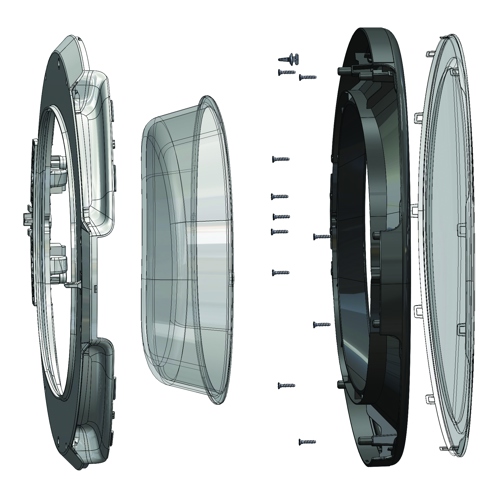TR Fastenings supports this legislation and explains how it works.
After years of campaigning this EU legislation will drive change in assembly methods with a major shift in how electronics and domestic appliances will be manufactured and serviced. It is already playing a key role in helping to extend product life, cut carbon emissions, and reduce landfill. Where there are more mechanical assembly methods employed there could even be a boost to create more jobs within the industry sector.
Benefit to consumers
Currently if an electrical product or domestic appliance develops a fault, having the ability to source spare parts and fix it yourself, or use an independent repairs service provider, has always made perfect sense. However, this has not really been possible for a long time. Today if you attempt to repair electronic goods or appliances it negates the warranty, so manufacturers have always sought to discourage it. The expected redesign of appliances will reduce products being welded, for example, which currently makes them inaccessible and therefore less likely to be repaired. As a major supplier to the health and home market, TR is actively supporting new designs and the re-introduction of fasteners so that they can be accessible for disassembly and repair.
Benefits of repair over new
Repairing a broken component part instead, particularly where the rest of the appliance works fine, saves the end user money in the first instance. Therefore, the need to replace a machine is much less likely, and it extends the life of the repaired product which in turn cuts down carbon emissions. It also helps the environment at both ends of the supply chain, even potentially creating jobs in the independent repair sector.
Sven Brehler, director of engineering, commented: “This is a very positive development that has been years in the making. While this is primarily about giving control to the consumer, there is also a very strong environmental case here as well. It will mean that fewer companies will weld products, for example, and instead introduce fasteners back into their designs that can be undone/unscrewed, providing extra accessibility for repairing items rather than having to always replace the entire unit. The environmental benefits are considerable, and this change will have wide reaching and a long-lasting impact on the manufacturing sector.”
Loss to the economy
This started to change in July 2021, when new laws came into force requiring manufacturers to make spare parts much more available to consumers. It was particularly important in the electronics market, where global brands had increasingly prevented user access. However, this was against a backdrop of growing concerns about electrical recycling and wastage. It is estimated that 1.5m tonnes of electrical and electronic items get thrown away each year in the UK, at a cost of £370m per year, which is an incredible figure in light of the sustainability net zero challenges.
For domestic appliances, the change in legislation was long overdue, and it will almost instantly start impacting the reusability of products and extending the lifespan of many domestic products, keeping items from landfill while reinvigorating the repairs sector. As we move further into what is widely anticipated to be an inflationary year, this will help consumers extend product life and save money.

Impact on TR Fastenings
For TR Fastenings and its customers, the new legislation overhaul was a very welcome change, feeding directly into its environmental, social and governance (ESG) strategy and drive to increase environmental responsibility wherever possible. TR is active across a number of different sectors including health and home (H&H) and energy, technology & infrastructure (E,T & I), all of which will be impacted by the changes.
It recently announced a new significant investment in its TR VIC spa site in central Italy which serves some 24 countries around the world in the health and home and light & heavy vehicle sectors.
Karol Gregorczyk, global account director for the health and home sector said: “The new rules will significantly impact manufacturers. TR’s customers collectively produce some 8-10 million washing machines and dryers every year, and they make spare parts available not only for washing machines and washer-dryers but also for dishwashers, refrigerators, and TV’s for the first time. This move will open up new opportunities and the reduction in welding can actually prove cheaper for manufacturers while moving away from the creation of non-repairable white goods. TR is very willing to support companies and assist in redesign. TR VIC has a technical and design centre within their manufacturing facility in Fossato di Vico, close to Fabriano which is near to many of the home appliance OEM’s and their subcontractors.”




